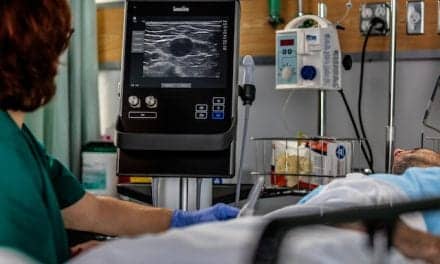UVA Health and the Charlottesville-based Focused Ultrasound Foundation announce the launch of the Focused Ultrasound Cancer Immunotherapy Center, a center dedicated specifically to advancing a focused ultrasound and cancer immunotherapy treatment approach that could revolutionize 21st-century cancer care.
Immunotherapy, which harnesses the immune system to battle cancer, is the most important breakthrough in cancer treatment in decades. So far, however, it has proven effective for only 20% to 40% of patients. But combining immunotherapy with focused ultrasound – a game-changing soundwave technology – has been found to overcome existing limitations of immunotherapy and may open new fronts in the war against many different forms of cancer, from breast cancer to brain tumors.
The center will cement the University of Virginia’s place as the preeminent site for translational research, education and patient care using the cutting-edge combination of focused ultrasound technology and cancer immunotherapy.
“We are excited to announce this powerful multidisciplinary and interdepartmental collaboration effort with the Focused Ultrasound Foundation and the Commonwealth of Virginia to expand treatment options for our cancer patients in this advancing field,” said K. Craig Kent, MD, Chief Executive Officer of UVA Health and Executive Vice President for Health Affairs at UVA. “Our combined initial investment of $8 million will purchase state-of-the-art focused ultrasound devices, create new jobs to hire faculty and staff, and fund laboratory research studies and clinical trials.”
“Focused ultrasound is proving to enhance the effectiveness of cancer immunotherapy throughout the cancer immunity cycle in a variety of ways,” said Neal F. Kassell, MD, Founder and Chairman of the Foundation,which works in partnership with the Cancer Research Institute and the Parker Institute for Cancer Immunotherapy to fund focused ultrasound cancer immunotherapy research around the world. “It can stimulate the body’s immune response to convert immunologically ‘cold’ tumors – such as most breast cancers – into ‘hot’ tumors, making more patients responders. It can also enhance the delivery of immunotherapeutics to tumors, and it may also augment the effectiveness of immunotherapeutics, enabling more robust and prolonged response to drugs and decreasing the doses needed.”
The center is designed to capitalize on UVA’s strengths – including cancer immunotherapy, focused ultrasound and medical imaging – and to leverage the expertise of the Focused Ultrasound Foundation to better understand focused ultrasound’s ability to improve a patient’s immune response to their cancer. The center’s goals include:
- Understanding how to optimize the antitumor effect of focused ultrasound;
- Developing new focused ultrasound technologies; and
- Improving quality of life and survival for patients with a variety of cancers while enhancing access to cutting-edge care and reducing costs.
The center will be led by Co-Directors Craig Slingluff, MD, Joseph Helms Farrow Professor of Surgery and Director of UVA Cancer Center’s Human Immune Therapy Center; David R. Brenin, MD, the M.C. Wilhelm Professor in Diseases of the Breast and Division Chief of Breast and Melanoma Surgery at UVA Health; and Richard Price, PhD, Lawrence R. Quarles Professor of Biomedical Engineering at UVA.
UVA Health was one of the earliest pioneers in the field of focused ultrasound. Research by UVA’s Jeff Elias, MD, and colleagues has already paved the way for the federal Food and Drug Administration’s approval of the technology to treat Parkinson’s disease symptoms and essential tremor, a common movement disorder. (The technology is approved for seven indications in the United States and more than 30 worldwide.) UVA’s expertise with the technology has led to a robust clinical and preclinical research program that is examining the use of focused ultrasound to treat many conditions, including cancer. Three groundbreaking cancer trials are already under way: two pair focused ultrasound with an immunotherapy drug in patients with metastatic breast cancer or solid tumors, while the third is using focused ultrasound plus chemotherapy to activate immune response in patients with early-stage breast cancers.
The Foundation’s point person for the center is Jessica Foley, PhD, Chief Scientific Officer and Managing Director of the Foundation’s cancer immunotherapy program.
[Source(s): University of Virginia Health System, EurekAlert]






